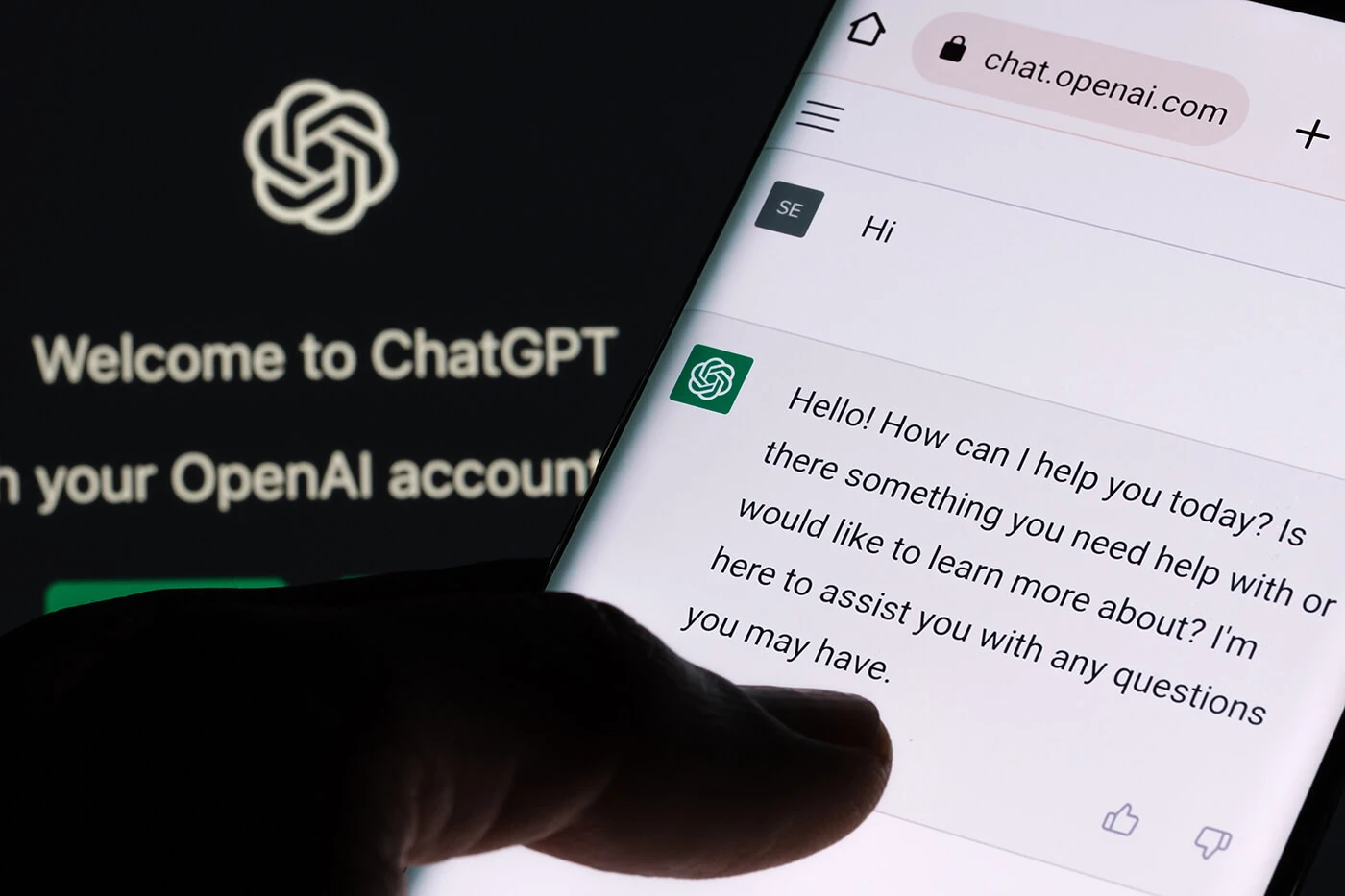By now, you’ve probably heard about cutting-edge Artificial Intelligence (AI) tools that are poised to transform everything we know about digital marketing. With the release of OpenAI’s ChatGPT tool in November (and the subsequent launch of its updated version, GPT-4, just a few weeks ago), virtually every industry has started contemplating the potential impacts of this technology. In the field of law, some attorneys have played around with using these tools to assist with the more menial tasks of law firm life (i.e., generating automated email requests for client reviews, coming up with a template for onboarding new clients, etc.). While some of the AI’s capabilities are remarkable, there is still so much to learn about how they actually work. This post will explore some of the ways that your law practice may use these tools to assist your marketing efforts, as well as some areas where it still may be best to rely on your established digital marketing strategy.
How AI Tools Can Streamline Your Legal Marketing Efforts
Before dismissing these tools outright or going all-in on using them for every aspect of your digital marketing efforts, it’s best to understand their strengths and shortcomings. So far, those who have explored ChatGPT’s capabilities have found that it can respond to questions or tasks within seconds, scanning the internet for information and displaying it coherently and concisely. However, it’s essential to recognize that the tool is only as good as the available data, meaning contradictory information on a legal topic, outdated laws, or inaccurate legal explanations may affect the quality and reliability of its response. We will get into this a bit later on—for now, let’s look at some tasks where AI tools excel and may be able to assist you with marketing your law practice.
Creating a Template for Requesting Client Reviews
Small to mid-sized law firms recognize the importance of receiving a steady stream of online reviews from former clients. Online reviews are an essential component of any SEO strategy, as search engine algorithms use them to measure a company’s trustworthiness and authority. If you’re looking for a way to streamline the client review request process, consider creating a generic template that can be sent to your clients via email or text message. The content simply needs to express how much you value client feedback and invite the recipient to write a brief review of their experience with your law firm. ChatGPT can help you generate this template in no time, saving you considerable time along the way.
Coming Up With Topics to Address in Blog and Social Media Posts
If your law firm’s digital marketing strategy involves creating regular blog or social media posts, you can use AI tools to generate a list of topics that will appeal to your target audience. You can ask it to provide you with a list of topics in your specific legal area (i.e., personal injury law, estate planning, etc.), and it will do so within seconds. Having a list of topics at the ready will save you the time and energy you would have devoted to this task, freeing you up to focus on other pressing matters.
Where AI Tools May Impede Your Digital Marketing Strategy
When you play around with tools like GPT-4, it may feel tempting to let it run wild and write most of your website content for you. However, even Google recommends sticking to “reliable, people-first content” rather than AI-created content. These tools are still so new, and they use content from all over the internet to influence their responses. As legal professionals, you know that not all information on the web is factually accurate. Here are a few areas where it’s best to stick to the tried-and-true practice of having humans handle the tasks themselves.
Website and Long-Form Content
Your website is often a potential client’s initial impression of you. This is a critical moment, so why leave it in the hands of an AI tool? You are in the business of serving people, so make sure that your written content addresses their very human needs and concerns. Your law firm understands your mission better than an AI tool does, so write each web page with care, empathy, and attentiveness. The same goes for longer-form content, like blog posts. When AI tools write multi-paragraph content, they may come across as disjointed or scattered in their scope and focus. For now, it’s best to continue writing your content yourself (or entrusting this task to your digital marketing agency that already knows how to write content that engages and connects with potential clients). Those who visit your website and read your posts will appreciate these subtle efforts.
Responding to Client Reviews
Some customer service companies have experimented with having ChatGPT craft automatic responses to customer reviews. When someone writes an online review, ChatGPT will “read” it and post a reply. When you entrust this task to an AI tool, you run the risk of it posting an insufficient or even inappropriate response. Client reviews are such an important part of your law firm’s reputation, so it’s best to respond to each review yourself. Any response you write will be genuine.
If you are interested in learning more about your law firm’s digital marketing options, contact LegalRev at (800) 893-2590 to get started.

